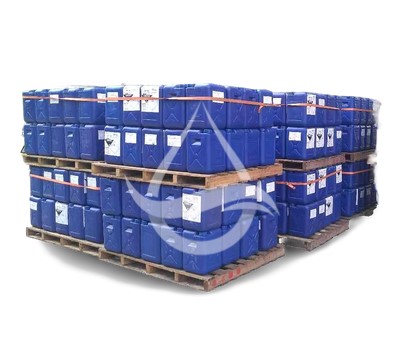Fluoride-based Chemicals
Fluoride-based chemicals are like the front-line soldiers in the battle for fabulousness. They are commonly used in metal electroplating processes to improve adhesion and provide a smooth and uniform coating. These chemicals bring out the shine in your jewelry and make it look like it just stepped out of a fairy tale.
Fluoroborate-based Chemicals
Fluoroborate-based chemicals are the secret weapons of the metal electroplating world. They excel at improving the brightness and leveling of the plated metal. These chemicals work behind the scenes to ensure that your bling stands out from the crowd, catching everyone’s attention.
Fluorosulfonate-based Chemicals
Fluorosulfonate-based chemicals are like the secret agents of metal electroplating. They have the unique ability to enhance the durability and wear resistance of the metal coating. These chemicals make sure that your bling remains fabulous and intact, no matter what adventures you embark on while wearing it.
Applications and Benefits of Fluorine Chemicals in Metal Electroplating
Fluorine chemicals play a crucial role in various industries, including metal electroplating. Let’s explore some of the key applications and benefits of using fluorine chemicals in this process.
Electronics and Semiconductor Industry
In the electronics and semiconductor industry, where precision and reliability are paramount, fluorine chemicals are essential for metal electroplating. They are used to deposit thin layers of metals like gold, silver, and copper onto semiconductor substrates, enhancing their conductivity and corrosion resistance. This ensures the efficient operation of electronic devices and helps create smaller, more powerful components.
Automotive Industry
The automotive industry relies heavily on metal electroplating to enhance the appearance and durability of various parts. Fluorine chemicals are used to deposit decorative and protective metal coatings on components like bumpers, grills, and wheels, providing resistance against corrosion, wear, and environmental factors. This not only improves the aesthetic appeal of vehicles but also prolongs their lifespan.
Aerospace Industry
In the aerospace industry, where safety and performance are paramount, metal electroplating is an indispensable process. Fluorine chemicals are utilized to deposit metal coatings on critical aircraft and spacecraft components, ensuring they are resistant to extreme temperatures, moisture, and corrosion. This improves their structural integrity and helps maintain the highest safety standards in this industry.
Challenges and Considerations in the Use of Fluorine Chemicals
While fluorine chemicals offer significant advantages in metal electroplating, there are some challenges and considerations that need to be addressed.
Environmental Impact and Safety Concerns
Fluorine chemicals can have environmental and safety implications if not managed properly. Some compounds may be hazardous and require strict safety protocols during handling and disposal. It is crucial to follow regulations and implement sustainable practices to minimize their impact on the environment and protect the well-being of workers.
Compatibility with Different Metals
Not all metals are compatible with fluorine chemicals in the electroplating process. Some metals may react poorly or form undesirable compounds when exposed to certain fluorine compounds. Careful selection of appropriate chemicals and adherence to proper plating parameters are necessary to ensure optimal compatibility and prevent potential issues.
Cost and Availability
The cost and availability of fluorine chemicals can vary depending on factors such as purity, demand, and production capacity. It is important to consider the economic feasibility of using these chemicals for metal electroplating, especially for small-scale operations or industries with budget constraints. Exploring alternative solutions or optimizing processes to minimize chemical usage can help mitigate these challenges.
Future Developments and Innovations in Fluorine Chemicals for Metal Electroplating
The field of fluorine chemistry is continuously evolving, presenting opportunities for future developments and innovations in metal electroplating.
Advancements in Fluorine Chemistry
Researchers are constantly exploring new compounds and optimizing existing ones, aiming to improve their performance, efficiency, and environmental impact. Advancements in fluorine chemistry may lead to the development of safer, more sustainable fluorine chemicals for metal electroplating, further enhancing the industry’s practices.
New Applications and Techniques
As industries evolve and new technologies emerge, the applications of metal electroplating may expand. Future developments may uncover novel uses for fluorine chemicals in areas such as renewable energy, medical devices, and advanced electronics. Additionally, advancements in plating techniques, such as nano-scale plating or selective deposition, may open up new possibilities in metal electroplating.
Conclusion: The Role of Fluorine Chemicals in Advancing Metal Electroplating Processes
Fluorine chemicals are indispensable in metal electroplating, driving advancements in various industries. From improving conductivity in electronics to enhancing durability in automotive and aerospace applications, these chemicals provide crucial benefits. Overcoming challenges regarding environmental impact, compatibility, and cost is essential for their responsible use. With ongoing developments and innovations, fluorine chemicals are poised to continue playing a crucial role in advancing metal electroplating processes, enabling improved performance, aesthetics, and longevity in a wide range of applications.
FAQ
What are the primary benefits of using fluorine chemicals in metal electroplating?
Fluorine chemicals offer several advantages in metal electroplating processes. They enhance adhesion, resulting in a stronger bond between the metal substrate and the deposited coating. Fluorine chemicals also improve corrosion resistance, protecting the metal from degradation and extending its lifespan. Additionally, they provide enhanced wear resistance, making the coated metal surface more durable and resistant to abrasion.
Are there any environmental concerns associated with the use of fluorine chemicals in metal electroplating?
Yes, environmental concerns are associated with the use of fluorine chemicals in metal electroplating. Some fluorine compounds are known to be persistent pollutants and can have adverse effects on ecosystems if not handled properly. It is crucial to follow appropriate safety measures and disposal protocols to minimize environmental impact. Additionally, there is ongoing research and development to find more environmentally friendly alternatives in metal electroplating processes.
Are fluorine chemicals compatible with all metals in the electroplating process?
Fluorine chemicals may not be compatible with all metals in the electroplating process. Some metals may react differently with fluorine compounds, affecting the plating quality or adhesion. It is important to consider the specific requirements of the metal being plated and consult with experts or conduct thorough compatibility tests before selecting the appropriate fluorine chemical for electroplating.
What are the future prospects for fluorine chemicals in metal electroplating?
The future prospects for fluorine chemicals in metal electroplating are promising. Ongoing research aims to develop more environmentally friendly and sustainable alternatives while maintaining the desirable properties of fluorine compounds. Advancements in fluorine chemistry techniques and processes are expected to lead to further improvements in metal electroplating, such as increased efficiency, reduced costs, and expanded applications. Continued innovation will drive the industry towards more advanced and eco-friendly metal electroplating solutions.










